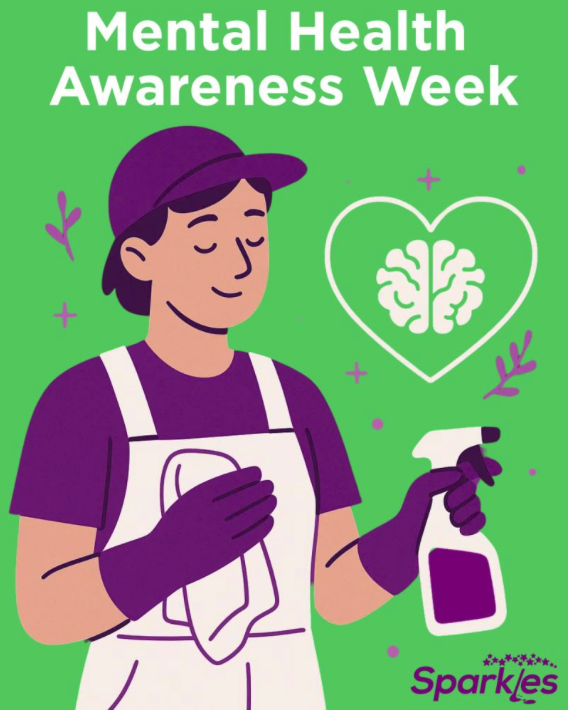
It’s Mental Health Awareness Week (held in May – and as of today, we’re in the thick of it!). This is a vital time to open up conversations, challenge stigma, and focus on the well-being of everyone in our communities, including our workplaces. As we discuss mental health, it’s crucial to consider those whose contributions often go unseen, those affected by “The Invisible Job” Syndrome – and our cleaning staff are prime examples.
“The Invisible Job” Syndrome refers to work that, when done well, blends into the background, Cleaning is the perfect illustration. We arrive to fresh restrooms and empty bins, often without a second thought for the individuals who made it so. Their labour largely occurs outside standard working hours, meaning they have minimal interaction with the main workforce, further shrouding their efforts in invisibility.
The Hidden Mental Health Burden of Invisibility
This lack of visibility isn’t just a matter of going unnoticed; it can have a profound and often detrimental impact on the mental health of cleaning professionals:
-
Loneliness and Social Isolation. Working predominantly alone, often during quiet or deserted hours, can lead to significant feelings of isolation. This lack of regular, positive interaction can contribute to loneliness, a known risk factor for depression and anxiety.
-
Lack of Recognition and Value. Imagine pouring effort into your work daily, only for it to be consistently overlooked or taken for granted. This can lead to feelings of being undervalued, unappreciated, and that your contribution isn’t important. Such feelings can severely erode self-esteem and job satisfaction.
-
Increased Stress and Pressure. While their work is unseen, the expectation for a clean and hygienic environment is always high. This pressure, often coupled with tight schedules and sometimes limited resources, can create significant stress. If something is missed, it’s noticed immediately, but the daily grind of maintaining standards often isn’t.
-
Reduced Sense of Belonging. Feeling invisible can make it difficult to feel like an integral part of the wider workplace team or community. This lack of belonging can exacerbate feelings of isolation and make it harder to seek support if needed.
-
Higher Risk of Burnout. The combination of physical exertion, repetitive tasks, potential exposure to chemicals and pressure contribute to a higher risk of burnout.
Mental Health Awareness Week: A Call to See the Unseen
This Mental Health Awareness Week, as we focus on creating supportive and understanding environments, let’s actively challenge “The Invisible Job” Syndrome. Here’s how workplaces can make a difference:
- Acknowledge and Appreciate: Make a conscious effort to acknowledge the cleaning team. A simple “thank you,” a note of appreciation, or positive feedback passed on via their supervisor can make a huge difference. Consider a “thank your cleaner day” or small tokens of appreciation.
- Improve Visibility: If possible and not disruptive, could some minor cleaning tasks be done during quieter parts of the workday to increase interaction? Or could profiles of the cleaning team be included in company newsletters (with their consent)?
- Ensure Fair Treatment: This goes beyond just thanks. Ensure fair pay, reasonable workloads, adequate supplies,proper training (including on mental health awareness and available support), and safe working conditions.
- Open Communication Channels: Ensure cleaning staff have a clear and safe way to report issues, concerns (including their own well-being), or to provide feedback, without fear of negative repercussions.
- Include Them in Workplace Well-being Initiatives: Are your cleaning staff aware of and included in any mental health support services, EAPs (Employee Assistance Programmes), or well-being events your company offers?Ensure materials are accessible to them.
- Educate All Staff: Briefly highlight the importance of the cleaning team’s work to all employees. Encourage staff to be mindful – tidying personal spaces, reporting spills promptly – to show respect for the cleaners’ time and effort.
This Mental Health Awareness Week, let’s extend our awareness and compassion to all members of our workforce. By making a conscious effort to “see” and value those performing the “invisible jobs,” we can help foster a more inclusive,appreciative, and mentally healthy environment for everyone. The shine they bring to our workspaces is essential; let’s ensure their well-being shines too.
















